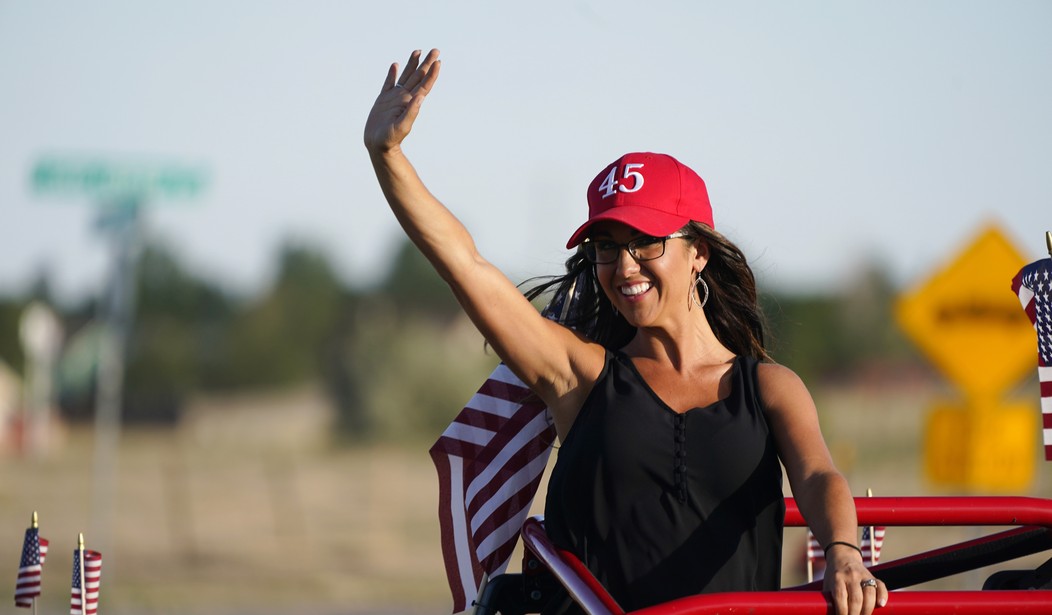Colorado Rep. Lauren Boebert, the vocal Second Amendment supporter who’s drawn the ire and outrage of gun control activists ever since she announced her campaign for Congress last year, is now being sued by a Democrat in her district over her social media use.
Bri Buentello, a former Democratic state legislator who lives in Boebert’s district, says the congresswoman blocked her on Twitter after Buentello demanded a recall effort to remove Boebert from office, violating her First Amendment rights in the process.
The suit seeks a court order for Boebert to unlock Buentello on Twitter and a declaration that the Republican’s actions violated Buentello’s constitutional rights to free speech.
An attorney for Buentello said Boebert’s “stifling” of critics should be of concern to everyone.
“She believes the Constitution begins and ends with the Second Amendment,” said attorney David Lane. “We are trying to teach her that the Constitution is broader and that every provision has to be protected.
Clearly there’s some political gamesmanship at work here, especially with Lane’s dig at Boebert’s outspoken embrace of the right to keep and bear arms.
When it comes to the issue of politicians blocking constituents on social media, however, Lane and his client have a point. Both the Second and Fourth Circuit Courts of Appeals have ruled that public officials engage in unconstitutional viewpoint discrimination when they block constituents from being able to see and respond to tweets. The most recent decision was handed down in the Second Circuit last year, dealing with a case involving President Donald Trump’s blocking of critics from his Twitter account.
As Judge Barrington D. Parker, writing for a unanimous panel, put it: “[T]he First Amendment does not permit a public official who utilizes a social media account for all manner of official purposes to exclude persons from an otherwise-open online dialogue because they expressed views with which the official disagrees.” Parker went on to conclude: “[W]e remind the litigants and the public that if the First Amendment means anything, it means that the best response to disfavored speech on matters of public concern is more speech, not less.”
That followed a Fourth Circuit case, decided in January, in which a local official blocked a man from a government Facebook page because of the man’s criticism of the county school board. In its opinion, the appeals court observed that the page had all “the hallmarks of a public forum” and that blocking access was “black-letter viewpoint discrimination.” That was the first circuit court ruling on the First Amendment’s application to government-run social-media accounts.
The basic lesson from these cases is that once a public official opens a social-media account and uses it to interact in an official capacity with users, the account qualifies as a public forum under the First Amendment, and the public official may not exclude users on the basis of viewpoint.
This is a bipartisan issue, by the way. Rep. Alexandria Ocasio Cortez was also sued last year for blocking critics on Twitter before she ultimately apologized and settled the lawsuit.
To the best of my knowledge the Tenth Circuit Court of Appeals, which oversees federal litigation in the state of Colorado, has not yet weighed in on a similar case, but Buentello’s lawsuit may give them the opportunity to do so. I have no idea if Boebert plans on fighting the lawsuit in court or simply unblocking Buentello, but based on the court decisions in the Second and Fourth circuits, the congresswoman is going to face an uphill battle if she chooses to keep one of her constituents from being able to follow her on social media.
If Boebert wasn’t a public official, of course, this wouldn’t be an issue. Shannon Watts from Moms Demand Action is quick to block anyone she doesn’t want to hear from (including me), and that’s fine. If Gov. Ralph Northam, on the other hand, decided to block me from following him and opining on his tweets, that would be illegal.
Even if you unblock someone, that doesn’t mean you have to pay any attention to what they have to say. That might be the best course of action for Boebert going forward; allow critics to follow, but pay them no mind.









Join the conversation as a VIP Member